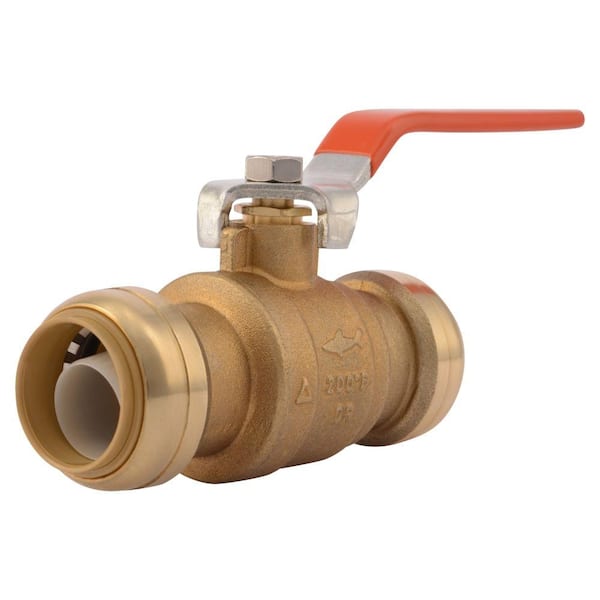Did you ever wonder how water flows seamlessly through your plumbing system? Or how industrial processes are efficiently controlled? The answer lies in the humble brass ball valve. In this article, we will explore the various benefits and uses of brass ball valves in plumbing and industrial systems. So, let’s dive in!
What are Brass Ball Valves?
Brass ball valves are mechanical devices that control the flow of fluids, such as water or gas, in plumbing and industrial systems. They consist of a hollow brass ball with a hole in the middle, which acts as the valve’s “shut-off” mechanism. When the ball is rotated 90 degrees, the hole aligns with the pipe, allowing the fluid to flow. When the ball is rotated back, the hole is blocked, stopping the flow.
Benefits of Brass Ball Valves
1. Durability and Longevity
One of the primary benefits of brass ball valves is their durability. Brass is known for its strength and resistance to corrosion, making it an ideal material for valves. Brass ball valves can withstand high pressure and temperature, making them suitable for both residential and industrial applications. With proper maintenance, brass ball valves can last for many years without any significant wear and tear.
2. Versatility
Brass ball valves are incredibly versatile and can be used in a wide range of applications. Whether it’s controlling the flow of water in your home plumbing system or regulating the flow of chemicals in an industrial plant, brass ball valves can handle the task with ease. They are available in various sizes and configurations to suit different needs, making them highly adaptable.
3. Easy Installation and Operation
Another significant advantage of brass ball valves is their ease of installation and operation. They can be easily integrated into existing plumbing or industrial systems without the need for complex modifications. Additionally, brass ball valves have a simple and intuitive design, allowing for smooth and effortless operation. With just a quarter turn of the handle, you can control the flow of fluid with precision.
4. Excellent Flow Control
Brass ball valves offer excellent flow control capabilities. When fully open, the hole in the ball provides a straight path for the fluid to flow, minimizing pressure drop and ensuring efficient operation. The quarter-turn operation of the valve allows for quick and precise adjustments to the flow rate. This level of control is essential in various applications, such as irrigation systems or industrial processes that require accurate flow regulation.
Uses of Brass Ball Valves
Now that we have discussed the benefits of brass ball valves let’s explore their diverse range of uses:
1. Plumbing Systems
Brass ball valves are commonly used in plumbing systems to control the flow of water. They can be found in residential buildings, commercial establishments, and even in municipal water supply systems. Whether it’s shutting off the water supply to a specific area or regulating the flow to individual fixtures, brass ball valves play a crucial role in maintaining the integrity of plumbing systems.
2. Industrial Applications
In industrial settings, brass ball valves find extensive use in controlling the flow of various fluids. They are often employed in chemical plants, oil refineries, power plants, and manufacturing facilities. Brass ball valves offer reliable and precise control over the flow of liquids and gases, ensuring smooth operation and preventing any potential leaks or accidents.
3. HVAC Systems
Heating, ventilation, and air conditioning (HVAC) systems rely on brass ball valves for temperature and flow control. These valves help regulate the flow of hot or cold water and ensure the proper functioning of HVAC systems in both residential and commercial buildings. Brass ball valves in HVAC systems contribute to energy efficiency by allowing for precise control over the heating and cooling processes.
4. Agricultural Irrigation
In agricultural applications, brass ball valves are used in irrigation systems to control the flow of water to crops. Farmers can adjust the flow rate using brass ball valves, ensuring that plants receive the optimal amount of water for growth. These valves also help in preventing water wastage, as they can be easily shut off when not in use.
Conclusion
Brass ball valves are indispensable components of plumbing and industrial systems. Their durability, versatility, ease of installation, and excellent flow control capabilities make them the go-to choice for professionals across various industries. Whether it’s for residential plumbing, industrial processes, HVAC systems, or agricultural irrigation, brass ball valves offer reliable and efficient flow control. So, the next time you turn on a faucet or witness a smoothly running industrial process, remember the crucial role played by brass ball valves!
